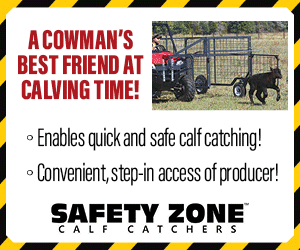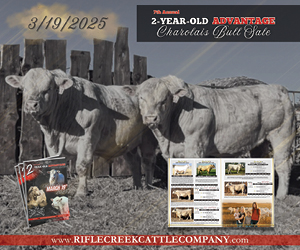The incredible story of Nat Love
By Bert Entwistle
Everyone loves a great Wild West story filled with six-guns, rustlers, Indians, horses and of course, great herds of cattle. There were a few old time cowboys that wrote about their adventures in the old days, but most just did their job and quietly faded away into history.
Nat Love, (pronounced Nate) however, was never one to do anything quietly, and in 1907, published his autobiography, Life and Adventures of Nat Love, Better Known in the Cattle Country as “Deadwood Dick,” by Himself. His tales of cattle drives, Indian battles, stampedes, storms and personal heroics could easily make a dozen Hollywood westerns.
Born in 1854, as a slave on a plantation in Davidson County, Tennessee, he was raised in a typical slave cabin with two siblings. Nat’s father, Sampson, was a slave foreman and his mother worked in the “big house.” In the antebellum south it was strictly against the law for slaves to learn to read and write. Although neither Nat nor his father had any formal education, his father disregarded the law, risking severe punishment, and helped him learn in secret.
In February of 1869, he left Tennessee with fifty dollars received from breaking colts and the sale of a horse, and headed west for Kansas Territory. “I wanted to see more of the world, and as I began to realize there was so much more of the world than what I had seen, the desire to go grew on me from day to day.”
Love walked, hitched rides and eventually worked his way to southwest Kansas. “It was in the west, and it was the great west that I wanted to see.” Looking for work on a ranch near the new town of Dodge City, Love met up with a Texas cattle company that just delivered a herd and was preparing to head back. Never shy, Nat approached the trail boss and asked for a job. He had no proper trail gear, or no guns, and looked more like a farmer than a cowpuncher.
Love writes that the boss challenged him to ride a wild horse named “Good Eye.” If he could ride him he’d hire him. If he couldn’t, there would be no job. Nat’s account says he rode the horse until it tired out. When he dismounted the boss hired him at thirty-dollars a month and took him to town and bought him complete new trail gear, including “. . . a fine .45 Colt revolver.”
Love notes that his new boss gave him the nickname, “Red River Dick,” which he carried for a long time. “The outfit of which I was now a member of was called the ‘Duval Outfit’, and their brand was known as the Pig Pen brand.”
On the trip back, he writes that they were suddenly attacked by Indians. “. . . there were about a hundred painted bucks all well-mounted. They were coming after us yelling like demons.” Their fifteen-man outfit lost one man in the fight, most of their packing gear and all but six horses. “. . . Although we had the satisfaction of knowing we had made several good Indians out of bad ones.”
Love worked as a trail hand in some of the earliest recorded drives, through rough country, rougher weather, cattle and buffalo stampedes and Indian attacks. He drove herds to places like Deadwood, in the Dakota Territory. His book tells of winning $200 in the 1876, Deadwood 4th of July rodeo. It was here that he says was tagged with the nickname “Deadwood Dick” after winning a shooting contest. Throughout that period the name was used by many others, including in popular dime novels of the day.
For all the braggadocio in the book, he was a genuine working cowboy for more than twenty years. The Duval Ranch was on the Palo Duro River and Nat stayed on for three years delivering cattle and horses as far as the Dakotas and Wyoming.
From Texas, he took a job at the Gallinger Ranch in southern Arizona, working for them from 1872 through 1890. Love drove large herds of cattle and horses to markets all over the West. “I soon became one of their most trusted men, taking an important part in all the big round-ups and cuttings throughout western Texas, Arizona and other states where the company had interests to be looked after.”
Love’s account of the Wild West is one that fans of the era would find fascinating. It covers the time from the early cattle drives, and when the buffalo numbered in the millions, to the arrival of the railroads. In twenty years, he saw his cowboy profession disappear, as well the bands of wild, ranging Indians he battled and the great herds of buffalo. “Buffalo hunting, a sport for kings, thy time has passed . . . where once could only be heard the sharp crack of a rifle or the long doleful yelp of a coyote,” lamented Love.
By 1890 the writing was on the wall, the adventures on the open prairies was over and he was ready to move on. “To us wild cowboys of the range, used to the wild and unrestricted life of the boundless plains, the new order of things did not appeal, and many of us became disgusted and quit the wild life for the pursuits of our more civilized brother. I was among that number and in 1890 I bid farewell to the life I had followed for over twenty years.”
A year later Nat Love travelled to Denver and hired on to the Pullman service on the Denver & Rio Grande Railroad. After marrying a woman named Alice, they moved into a cottage in Denver and Nat began his job as a porter on the route between Salida, Colorado and Denver.
Love talks about meeting many of the iconic characters of the period including Bat Masterson, Buffalo Bill, Yellowstone Kelly, Billy the Kid, the James brothers,
Kiowa Bill, Pat Garrett and many others. His story is remarkable, even though he had been accused of stretching the truth on a few occasions. He writes of being shot fourteen times over his years on the trail and being captured by Indians and then escaping at night on a stolen Indian pony.
Love wrote with a view point that was popular in the period, claiming men like Frank and Jessie James gave their stolen money to needy people and that Billy the Kid was an honorable man. Even with some bragging and rationalization of the times, Nat and Deadwood left an incredible record for the world to see it as it was through the eyes of someone who was there.
Nat and Alice had one daughter, and retired to California. He died there in 1921.
Bert’s website is:
Courtesy of Boot Hill Museum, Inc, Dodge City, Kansas
“To us wild cowboys of the range, used to the wild and unrestricted life of the boundless plains, the new order of things did not appeal, and many of us became disgusted and quit the wild life for the pursuits of our more civilized brother.” Nat Love (pronounced “Nate”)
Courtesy of Boot Hill Museum, Inc, Dodge City, Kansas
A herd near Dodge City, Kansas about the time Nat Love showed up in town.





